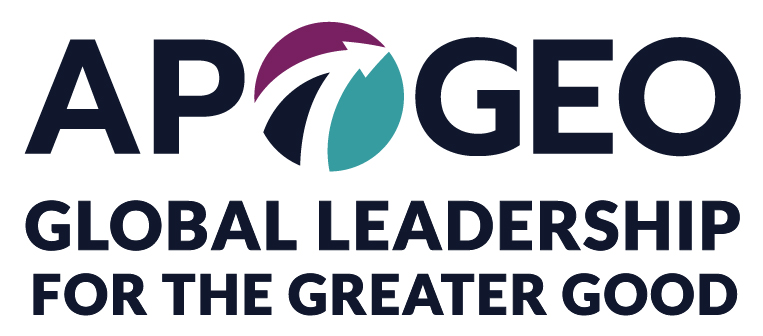If there is anything new COP26 illustrates, it is this: We know we are not changing fast enough.
On Day 1 UN Secretary General António Guterres said “we are digging our own graves.”
On Friday, November 5, former US Vice President Al Gore commented, “We know we have made progress, but we are far from the goals that we need to reach.”
For the seven minutes Sir David Attenborough spoke, on-screen graphics tracked the rise of carbon concentration in the Earth’s atmosphere, already at 149% of pre-industrial levels. “If working apart we are a force powerful to destabilise our planet,” he said, “surely working together we are powerful enough to save it,” he said.
That recovery will require far more innovative, collaborative, unified action across the globe.
There are some indications that corporations are more likely and able to drive that recovery than are governments. In many cases businesses are pushing governments and financial institutions to act more quickly on climate. In fact, COP26 may be remembered as “Business COP” because of the ~US$130 trillion in net-zero aligned financing committed by the private sector (as context, global annual GDP is ~US$80 trillion).
Here are 4 reasons we at APOGEO Group work with the world’s largest companies — including some of the world’s largest polluters — to drive positive cultural transformation and leadership for the greater good:
1 Expressed Desire & Pressure to Perform
62% of the 50 largest S&P companies have stepped up to net zero targets in just a few years. 80% of corporate carbon emissions can be attributed to just 167 companies. Around 2030, the net-zero targets set by 111 focus companies will reduce greenhouse gas emissions by 3.7 billion metric tons of carbon dioxide equivalent (GtCO2e) annually. We have worked in and with several of those organizations. They face pressure internally from employees, externally from consumers, interest groups, etc.
2 Ability to Rapidly Transform for Ambitious Targets
One lesson from the COVID-19 pandemic has been that when needed, corporations can collaborate and innovate at unprecedented rates. The speed of the COVID-19 vaccine development and global distribution illustrates clearly that when needed corporations can share risk, work with regulatory agencies, and produce unprecedented positive results.
Pfizer CEO Albert Bourla wrote in the Harvard Business Review, “On March 19, 2020, as Covid-19 swept across the world, I challenged everyone at Pfizer to ‘make the impossible possible.’” He cites three main factors that contributed to Pfizer & BioNTech’s success:
- the teams and their collaboration,
- their purpose and ambitious goal, and
- the conditions to make their work possible: an environment conducive to creativity separate from the commercial realities of the business.
These are exactly the questions we most often get & the type of work we do with clients:
Senior leaders ask, “How do I get them to think bigger?” “What’s our moonshot?” and “How do we foster creativity and innovation?”
We learn from their employees where the impediments and potential for innovation are and work directly with them to transform their cultures. We’ve seen cultural transformation occur within months in client organizations from Denmark to Cape Town, Qatar to Utrecht. (CERN’s Idea Square Journal of Experimental Innovation recently published an article on this topic our CEO Rebecca Self co-authored with Steffen Raetzer of Innovating.Work.)
3 Even Small Actions Can Have Massive Impact
We work with organizations on a scale that means even small tweaks can have massive impact: a procurement decision, a change to a project or manufacturing process, a single strategic decision, the way a team discusses certain topics… if enough people engage in focused, facilitated behaviors simultaneously, together they can make a significant positive difference in the world. We design & deliver those interactions; program participants move the dial. When your people work together in concert, they can achieve remarkable, seemingly impossible, things.
4 We Like Your People
Our co-Founder & CEO, Rebecca Self, loves telling stories about working with hundreds of male, Muslim engineers or port workers in the Middle East and rowdy rooms of guys off rigs in the North Sea. They’re fun stories because their success seems so unlikely, she admits to being as surprised as anyone to discover that highly technical frontline & mid-level leaders the world over are not only receptive to but eager for introspective, transformational development work.
This is true of all of us: we do this work because we like your people. They’re fathers, brothers, mothers, sisters, committed employees and leaders. We want to see them thrive doing rewarding work together; we’re willing to have all kinds of new and different conversations to make that happen. Our unique Megatrends Leadership™ model allows us to quickly design and deliver programming that moves you all forward together.
In Conclusion
We knew when we set out that if we focused on market-leading organizations in a handful of industries, even though we are a small coalition of global experts, through their people and success our work would have meaning.
Just as the problems we collectively face are enormous, so too are the possibilities.
As Sir Attenborough now famously concluded, “In my lifetime, I’ve witnessed a terrible decline. In yours, you could witness a wonderful recovery.”
We support visionary global leaders by working directly with their workforces to amplify their messages, spark bold new action, and develop groundbreaking regenerative solutions. We find out what’s working & where the obstacles are in how they work together, then design & deliver innovative digital, live, and hybrid programming that moves everyone forward. Are you ready?





